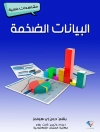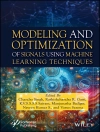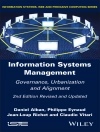An all-in-one resource on everything electronics-related!
For almost 30 years, this book has been a classic text for
electronics enthusiasts. Now completely updated for today’s
technology, this latest version combines concepts, self-tests, and
hands-on projects to offer you a completely repackaged and revised
resource. This unique self-teaching guide features
easy-to-understand explanations that are presented in a
user-friendly format to help you learn the essentials you need to
work with electronic circuits.
All you need is a general understanding of electronics concepts
such as Ohm’s law and current flow, and an acquaintance with
first-year algebra. The question-and-answer format, illustrative
experiments, and self-tests at the end of each chapter make it easy
for you to learn at your own speed.
* Boasts a companion website that includes more than twenty
full-color, step-by-step projects
* Shares hands-on practice opportunities and conceptual
background information to enhance your learning process
* Targets electronics enthusiasts who already have a basic
knowledge of electronics but are interested in learning more about
this fascinating topic on their own
* Features projects that work with the multimeter, breadboard,
function generator, oscilloscope, bandpass filter, transistor
amplifier, oscillator, rectifier, and more
You’re sure to get a charge out of the vast coverage included in
Complete Electronics Self-Teaching Guide with Projects!
Tabla de materias
Introduction xvii
Chapter 1 DC Review and Pre-Test 1
Current Flow 2
Ohm’s Law 5
Resistors in Series 10
Resistors in Parallel 10
Power 12
Small Currents 15
The Graph of Resistance 16
The Voltage Divider 18
The Current Divider 24
Switches 30
Capacitors in a DC Circuit 33
Summary 41
DC Pre-Test 43
Chapter 2 The Diode 47
Understanding Diodes 48
Diode Breakdown 70
The Zener Diode 75
Summary 86
Self-Test 87
Chapter 3 Introduction to the Transistor 91
Understanding Transistors 92
The Junction Field Effect Transistor (JFET) 123
Summary 129
Self-Test 129
Chapter 4 The Transistor Switch 135
Turning the Transistor On 136
Turning Off the Transistor 142
Why Transistors Are Used as Switches 146
The Three-Transistor Switch 161
Alternative Base Switching 166
Switching the JFET 172
Summary 181
Self-Test 182
Chapter 5 AC Pre-Test and Review 187
The Generator 188
Resistors in AC Circuits 193
Capacitors in AC Circuits 195
The Inductor in an AC Circuit 202
Resonance 204
Summary 207
Self-Test 207
Chapter 6 Filters 211
Capacitors in AC Circuits 212
Capacitors and Resistors in Series 214
Phase Shift of an RC Circuit 239
Resistor and Capacitor in Parallel 246
Inductors in AC Circuits 250
Phase Shift for an RL Circuit 258
Summary 260
Self-Test 260
Chapter 7 Resonant Circuits 267
The Capacitor and Inductor in Series 268
The Output Curve 286
Introduction to Oscillators 309
Summary 314
Self-Test 314
Chapter 8 Transistor Amplifiers 319
Working with Transistor Amplifiers 320
A Stable Amplifier 330
Biasing 334
The Emitter Follower 350
Analyzing an Amplifier 356
The JFET as an Amplifier 361
The Operational Amplifier 370
Summary 380
Self-Test 380
Chapter 9 Oscillators 385
Understanding Oscillators 386
Feedback 396
The Colpitts Oscillator 402
The Hartley Oscillator 414
The Armstrong Oscillator 421
Practical Oscillator Design 422
Simple Oscillator Design Procedure 423
Oscillator Troubleshooting Checklist 426
Summary and Applications 432
Self-Test 432
Chapter 10 The Transformer 435
Transformer Basics 436
Transformers in Communications Circuits 447
Summary and Applications 451
Self-Test 452
Chapter 11 Power Supply Circuits 455
Diodes in AC Circuits Produce Pulsating DC 456
Level DC (Smoothing Pulsating DC) 474
Summary 490
Self-Test 490
Chapter 12 Conclusion and Final Self-Test 493
Conclusion 493
Final Self-Test 495
Appendix A Glossary 509
Appendix B List of Symbols and Abbreviations 513
Appendix C Powers of Ten and Engineering Prefixes 517
Appendix D Standard Composition Resistor Values 519
Appendix E Supplemental Resources 521
Web Sites 521
Books 522
Magazines 522
Suppliers 523
Appendix F Equation Reference 525
Appendix G Schematic Symbols Used in This Book 529
Index 533
Sobre el autor
Earl Boysen is a veteran engineer who maintains two
technology-focused websites, www.buildinggadgets.com and
www.understandingnano.com. He is coauthor of the first edition of
Electronics For Dummies as well as Electronics Projects For Dummies
and Nanotechnology For Dummies, all published by Wiley.
The late Harry Kybett wrote the bestselling first and second
editions of Electronics Self-Teaching Guide. He was director
of engineering operations at Columbia Pictures Corporation. He
built many studios and video systems for the broadcasting industry,
and created training programs for Sony Corporation of America.












